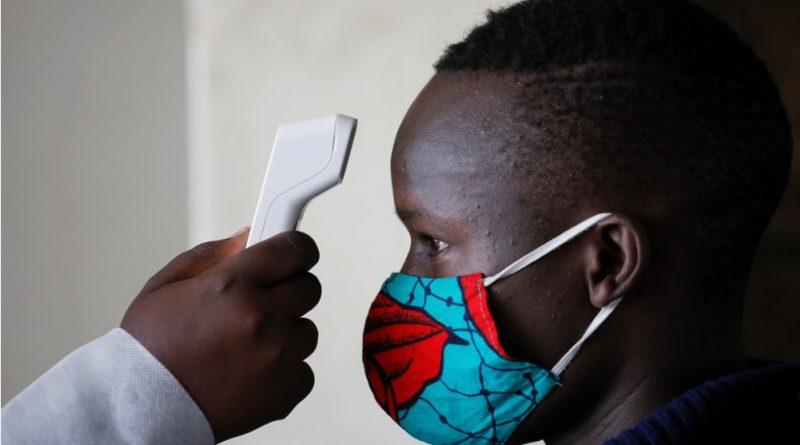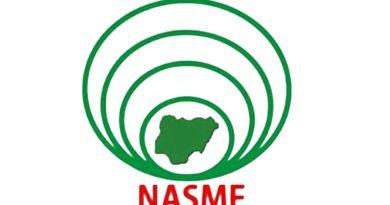APPLY: Thomson Reuters Foundation Training Programme for Journalists: Breaking Down Barriers to Health Services
The deadline for receiving applications is: 24 February. APPLY
This is an opportunity provided by the Environment, Health & Resilience programme: Find out more
Thomson Reuters Foundation (TRF) and the Global Fund are joining forces to combat human rights-related barriers to health services. This important partnership aims to advance the Global Fund’s work on human rights as part of the ‘Breaking Down Barriers’ initiative, by supporting journalists to generate awareness of how stigma and discrimination, gender inequalities and violence serve as barriers to health services for some of the world’s most vulnerable populations, particularly in the context of the immense difficulties brought about by COVID-19 and responses to the pandemic.
The partnership also supports the implementers of Global Fund grants in Africa to work more effectively with the media. The initiative builds on TRF’s mission to support free, fair and informed societies and its expertise in using the power of journalism and the law to advance media freedom and protect human rights.
This will be the first Breaking Down Barriers course focusing specifically on human rights- and gender-related barriers to TB services and on the approaches and programmes that can help overcome them.
It will cover issues such as TB-related stigma and discrimination, as well as laws and policies that create barriers in the way of access to health services. The programme will also cover efforts to reduce the impact of the COVID-19 pandemic on human rights and on progress made in the fight against TB, as well as HIV and malaria.
TRF and the Global Fund would like to invite interested journalists, based in a selection of African countries, to submit applications to participate in this new training opportunity, via the application process set out below. The five countries eligible for participation in this programme are Ghana, Kenya, Mozambique, Nigeria and South Africa.
TRF will deliver a six-week online training programme in English, combining live video sessions and offline work, to strengthen journalistic skills and enhance knowledge of human rights-related barriers to health services.
The programme will involve a blend of lively interactive online sessions, expert briefings, and exercises, to sustain a highly practical, engaging and relevant training experience.
While the programme will not provide intensive training in medical reporting or health journalism, it will review the specific challenges associated with public health reporting – particularly in situations where official responses to COVID-19 have increased constraints on journalists.
Those include ethical considerations when interviewing vulnerable people and covering sensitive issues specifically associated with the diseases that make up the focus of the Global Fund’s work – tuberculosis, malaria, HIV/AIDS, and more recently COVID-19. The course content will cover interview and news-gathering techniques as well as multimedia skills and will also explore how to identify misinformation and simplify sector-specific language and terminology.
As part of the same TRF-Global Fund partnership, representatives from organisations working on Global Fund-supported programmes, and staff of national TB efforts, will also receive media training. Participants from both courses will be brought together at the end of the programme to foster connections and build a sustainable network.
FORMAT
During the programme, trainees will come together twice per week for training sessions that will comprise a blend of live group sessions, offline and group work, and time with expert speakers. Time will also be available for one-to-one sessions with TRF trainers.
A forum will be created for continued discussion and networking between journalist participants and the Global Fund’s civil society partners participating in the parallel media training course.
At the end of the course, participants will pitch story ideas for the opportunity to participate in a mentoring programme.
PROGRAMME BREAKDOWN
21st March – 9th May 2022 (with a break from 13th – 24th April for the Easter holidays)
• Two weekly sessions with TRF trainers, including online and offline segments featuring guest speakers, presentations, Q&A, exercises and group work.
• Weekly access to TRF trainers for additional mentoring tailored to individual needs.
• Short assignments and activities
Participants should allow for 3.5 hours for the main weekly training session (Mondays) as well as 2 hours for an additional session for discussions and mentoring (Thursdays). They should also be prepared to invest an additional 2 hours per week for assignments and preparation.
ELIGIBILITY
Applicants must be full-time journalists or regular contributors working for media organisations based in the following countries: Ghana, Kenya, Mozambique, Nigeria and South Africa.
Applicants should have a minimum of two years’ professional experience, and should explain through their applications why they will benefit from participation in this course, and how they plan to use the learning in their professional work.
Once selected, applicants will also be asked to provide a letter from their editor supporting their participation in the programme, including a commitment to publish the story they will produce should they participate in the mentoring component of the course. This will only be requested by TRF once applicants have been selected for the course.
Applicants must have access to a minimum internet speed of 1.5 MB/second. (You can check the speed of your device at www.speedtest.net). Applicants will also need access to a computer to participate in the training; participation from a mobile or smart phone will not be possible.
Please note: To ensure a reliable connection, Thomson Reuters Foundation will contribute to participants’ data costs.
SUBMISSIONS
Applicants will be asked to upload the following documents as part of the application process:
• Two relevant work samples (maximum file size 5 MB). TV/Radio journalists may submit transcripts of broadcasts, a brief summary, and/or links to online versions. Participants are encouraged to provide details of circulation and reach of their publications if possible.
• A biography of up to 250 words outlining your career.
• A statement of between 250 and 500 words describing how you expect to benefit from this course, how you plan to use what you learn in your professional work, and any factors affecting your work as a journalist which may be considered relevant to your application.
Please note there are limited spaces available; TRF will consider all applications on merit.
If you have any difficulties applying, please email trfmedia@thomsonreuters.comAPPLY




